What Pakistan Can Learn from Cambridge Tech Week 2025

Muhammad Naeem:
Cambridge, UK:I attended Cambridge Tech Week 2025 from September 15 to 19 at the Cambridge Corn Exchange, representing my organization The Other Side. This event is known as one of the UK’s leading gatherings for technology, innovation, and future trends. For me, it was a great opportunity to see how technology is shaping the world and to compare it with the progress of Pakistan’s tech industry.
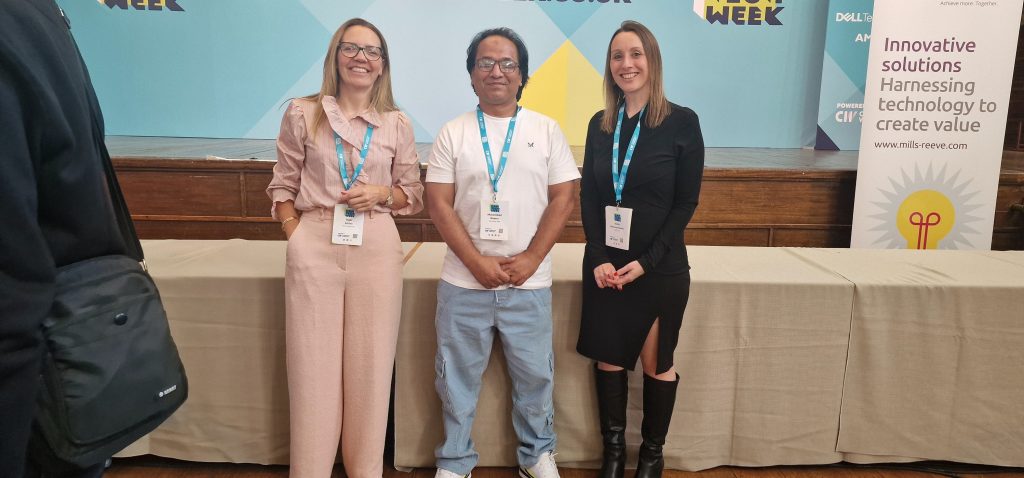
The Event
Cambridge Tech Week was full of energy and ideas. The event brought together entrepreneurs, researchers, investors, and technology leaders from around the world. The sessions, exhibitions, and networking spaces gave a complete picture of how fast technology is changing our lives.
I saw presentations on artificial intelligence, green technology, future mobility, cybersecurity, and digital health. Many startups showcased creative solutions for real-world problems, while global companies shared their vision of the future.
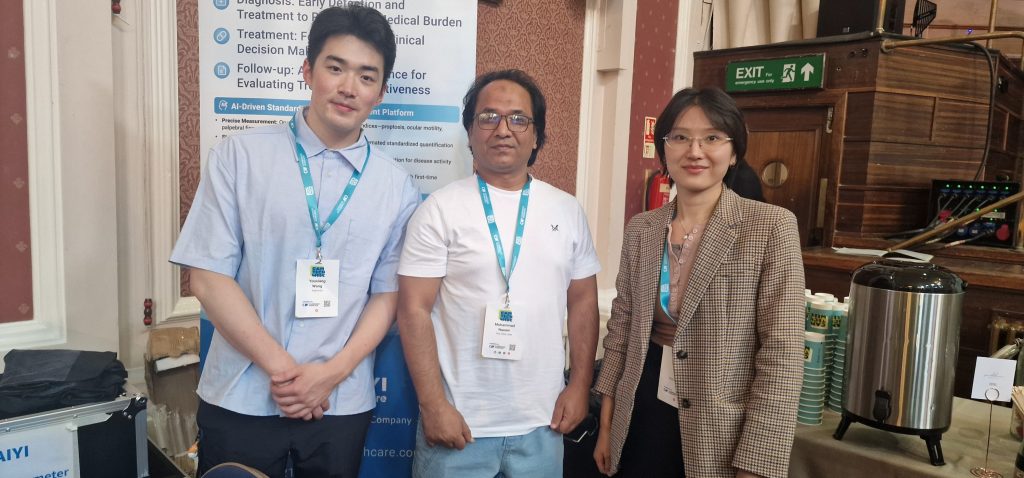
Learning and Insights
What impressed me most was the mix of research and practical innovation. Cambridge is already famous for its universities and tech clusters, and the event reflected this strength. Discussions about AI, robotics, clean energy, and smart cities showed how technology is not just about business but also about solving social and environmental challenges.
I also noticed the strong role of collaboration. Startups, big companies, and academics worked together to create solutions, something that is still limited in Pakistan.
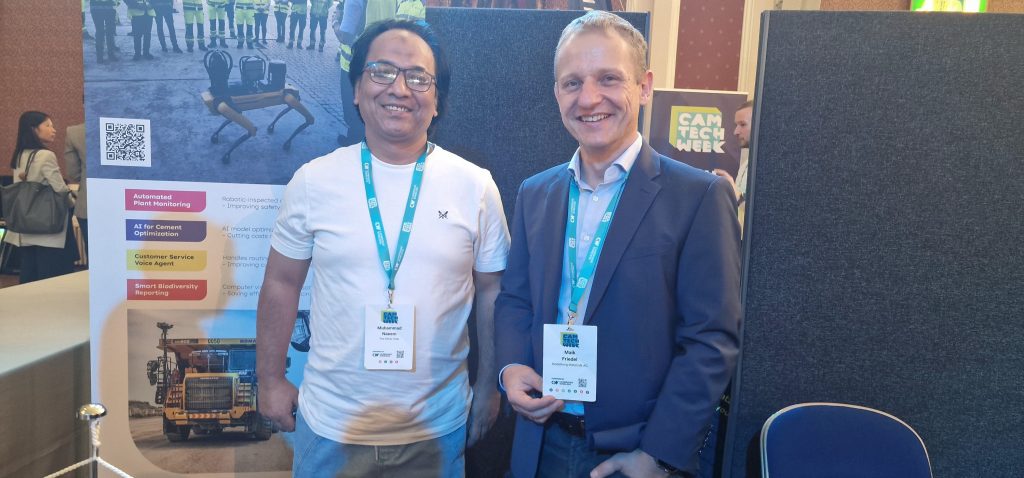
Comparison with Pakistan
When I compared Cambridge Tech Week with Pakistan’s technology scene, the gap was very clear. In the UK, technology is supported by research institutions, investors, and government policies. Startups have access to funding, mentorship, and international networks.
In Pakistan, we have talent and ideas, but our ecosystem is weak. Startups often face a lack of funding, limited government support, and fewer opportunities to connect with global markets. Many young entrepreneurs give up early because they do not get the right environment to grow.
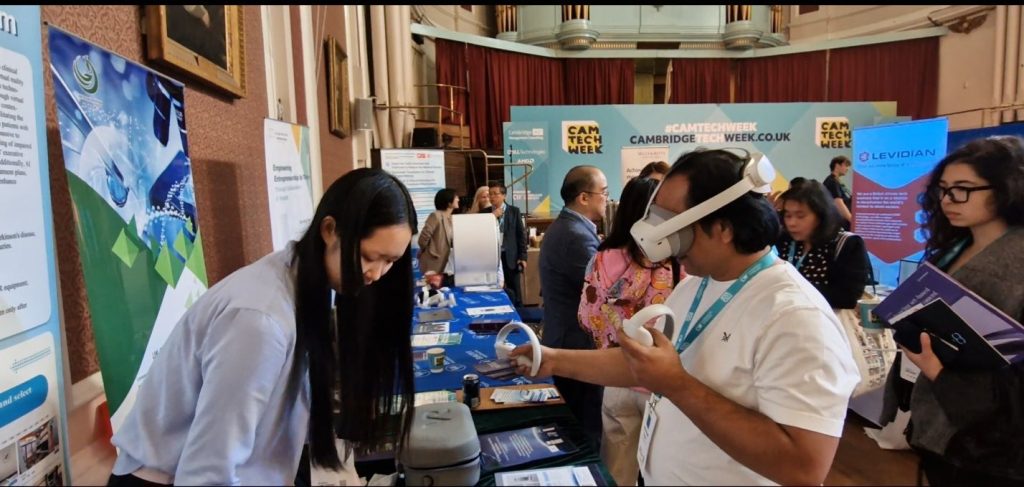
Challenges for Participation
For international professionals, attending Cambridge Tech Week also has challenges. The high cost of travel and stay in the UK makes it difficult for many people, especially from countries like Pakistan. Visa rules also add another barrier. This reduces the number of people who can benefit from such important events.
Suggestions for Pakistan
Pakistan should learn from Cambridge Tech Week and create its own platforms for technology exchange. National-level events, research partnerships, and startup competitions can help young innovators. Government and private sector should work together to provide funding, training, and global exposure. Universities should also play a bigger role in supporting innovation.
By building a stronger ecosystem, Pakistan can encourage its youth to create solutions for local and global problems, just like we see in Cambridge.
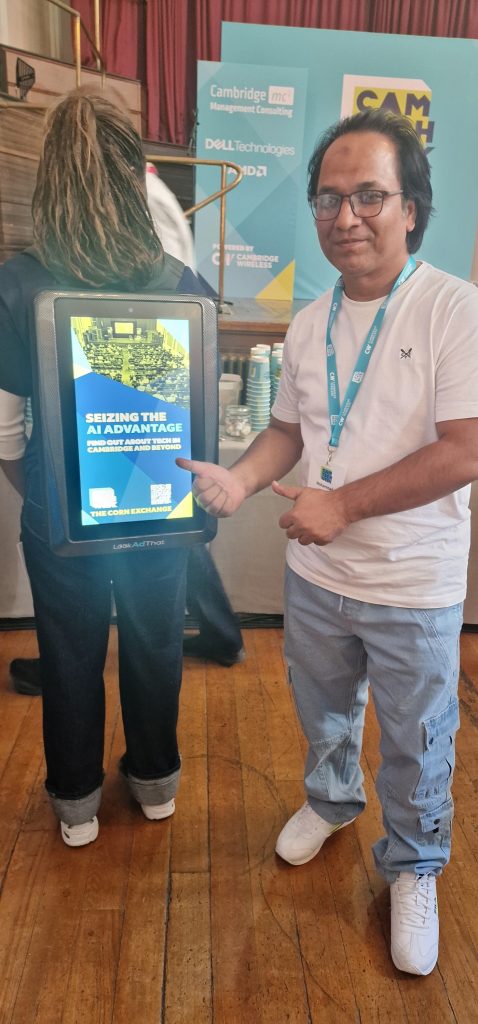
Conclusion
Attending Cambridge Tech Week 2025 was an inspiring experience. It showed me how technology is shaping the future and how collaboration is key to success. For Pakistan, the lesson is clear: we must invest in our talent, support innovation, and create opportunities for startups. With the right steps, Pakistan can also become a hub of technology and innovation.





